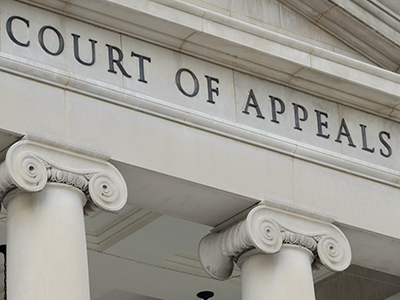
Last week, a divided panel of the U.S. Court of Appeals for the Fifth Circuit struck down the U.S. Department of Labor’s (“DOL”) “Fiduciary Rule,” a controversial measure that redefined exemptions to Employee Retirement Income Security Act of 1974 (“ERISA”) provisions concerning fiduciaries. The DOL’s rule, promulgated in April 2016, consisted of a package of seven interrelated rules, and it sparked controversy by redefining how brokers and other financial professionals serve consumers. First, the Fiduciary Rule reinterpreted the ERISA term “investment advice fiduciary,” heightening the fiduciary duty for these financial professionals to a “best interest” standard for their clients with ERISA plans and individual retirement accounts (“IRAs”). This “best interest” standard marked a significant departure from the prior standard for brokers, which required them to recommend investments that were merely “suitable” for their clients. Second, the Fiduciary Rule created a “Best Interest Contract Exemption,” which allowed financial professionals to avoid prohibited transactions penalties as long as they contractually affirmed their fiduciary status.
Background Behind the Fiduciary Rule
The tense political arena surrounding the DOL’s rule began well-before the rule’s debut. In 2010, Dodd-Frank, the Obama-era financial reform law, delegated authority to the Securities and Exchange Commission (“SEC”) to propose a uniform fiduciary rule for retail investment accounts. Rather than waiting for the SEC’s rule, the DOL took it upon itself to promulgate its own Fiduciary Rule in 2016. According to his statements, SEC Chairman Jay Clayton has been working with the DOL since his appointment in May 2017 to find common ground on a fiduciary standard that would apply to investment accounts across the board. And Chairman Clayton stated that the SEC will continue to move forward with its rule in the wake of the Fifth Circuit’s rejection of the DOL’s rule. Without going into specifics, he told attendees at the recent SIFMA Compliance and Law Conference that he was hoping to propose a new simplified standard of disclosure for broker-dealers and investment advisers related to individual clients as well as those saving for retirement.
Fifth Circuit’s Decision
The Fifth Circuit’s decision striking down the DOL’s Fiduciary Rule in Chamber of Commerce v. U.S. Department of Labor represents a major victory for industry participants. Judge Edith Jones, writing for the panel majority, held that the DOL acted arbitrarily and capriciously in enacting its Fiduciary Rule and improperly went beyond the scope of its delegated administrative authority. The panel enumerated seven reasons why the rule was unreasonable, and noted that the rule “infring[ed] on SEC turf.” The “DOL,” Jones stated, “has made no secret of its intent to transform the trillion-dollar market for IRA investments, annuities and insurance products, and to regulate in a new way the thousands of people and organizations working in that market.” Specifically, the court determined that the Fiduciary Rule’s new definition of “fiduciary” was inconsistent with the text of ERISA and the Internal Revenue Code and inconsistent with the common-law meaning of “fiduciary,” and that the DOL impermissibly abused its authority to grant the exemptions from regulatory burdens, including the Best Interest Contract Exemption. The court thus vacated the DOL’s Fiduciary Rule under the Administrative Procedure Act, effectively voiding the entire rule nationwide.
What’s Next?
At the time of the Fifth Circuit decision, the DOL’s Fiduciary Rule was already on the ropes; the DOL has delayed full implementation of the rule until July 2019 to complete a review into the rule’s full scope. The DOL may have lost the battle in the Fifth Circuit, but the war is not over. There remains a chance that these complex fiduciary questions will find their way to the U.S. Supreme Court. Just days before the Fifth Circuit’s decision, the Tenth Circuit ruled in favor of the DOL on a more limited challenge to the Fiduciary Rule. This partial split between federal circuits makes this issue potentially ripe for Supreme Court review. Separately, the SEC began conducting a review of the Fiduciary Rule in October 2017, with a goal of introducing a new rule that harmonizes regulation of investment advice. An SEC rule likely would apply to a broader swath of brokers – not just those who sell retirement products – and could dramatically change the investment community’s practices.

